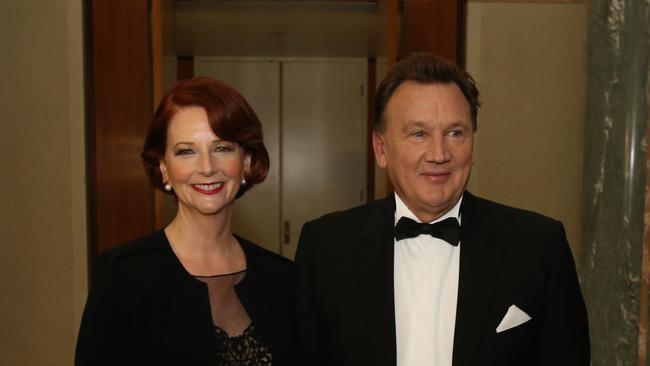It took me years to accept the term ‘wife’ for myself - it felt burdened with so much baggage


Last year, when California’s new governor Gavin Newsom was sworn in, his wife announced her decision to put to bed the traditional title of “First Lady”. Jennifer Siebel Newsom declared she would be known henceforth as the state’s inaugural “First Partner”. She’d already written and directed a documentary called Miss Representation, about the under-representation of women in leadership, and she took ownership of “First Partner” to signal a commitment to gender equality. “Being First Partner is about inclusion, breaking down stereotypes, and valuing the partnerships that allow any of us to succeed,” she tweeted at the time.
It took me years, decades, to accept the term “wife” for myself, because it felt burdened with so much baggage. Despite being married for 22 years, my politics, my feminism, my world seemed destined to shut that word out. “Wife” implied subjection, subservience, servitude, being owned and erased. A relic of a pre-feminist millieu, a stifling world of ironing men’s shirts and wearing aprons and sex on demand and a casserole waiting on the table. I did not want to be that woman. So despite being married it was always to my “partner”, not my “husband”. Like Siebel Newsom, I wanted something indicating a little more equality in the relationship.
My stance has softened over the years. To the long-married friend who uses a bank account that’s still in her husband’s name, and doesn’t have one of her own, I use the term “wife” as a sign of respect for her and her world. To just about everyone else, it’s partner. The Chap teases that he quite likes having a wife as opposed to a partner and, well, love in a long-term relationship is about compromise, letting go, loosening. Plus many of our LGBT friends have embraced the tenderness, pride and sheer delight that comes with introducing their husband or wife now that same-sex marriage has been legalised. They’re part of the marriage club, at last, and damn it feels good.
What works now for younger generations? “Boyfriend” and “girlfriend” sound too adolescent; “companion” is a little cold, “significant other” too old-fashioned, “lover” a tad too sweaty and icky. The term “partner” has been steadily gaining traction. It’s gender-neutral and inclusive; it implies an equal stance, a meeting of minds and souls. And perhaps it’s the best bet of the lot right now.
Andrew Cherlin, Professor of Sociology at Johns Hopkins University in the US, says younger generations increasingly view the institution of wedlock as dated. “If you get married in your 20s, and you’re part of a college-educated crowd, it might feel old-fashioned or even embarrassing to admit that you’re married,” he explains. And because young newlyweds around us might be far less eager to trumpet their marital status, they’re gravitating towards the term “partner”. I love it, am all for it. So whatever gender future US presidents may be, I hope they agree on “First Partner” (if they have one). Because that feels like the least reductionary label of the lot.



Do you use the term “partner” to describe your significant other, if you have one? In these enlightened times the term, alongside “wife” or “husband”, “boyfriend” or “girlfriend” or “lover”, has become fraught with sensitivities and divisions. But the labelling will be interesting if Kamala Harris, the US Democratic Vice-Presidential pick, becomes president one day. Then we could have a “First Husband” or “First Man” in the White House. Say what? The terms sound odd… gloriously, for the feminists among us. But perhaps Harris’s husband, Douglas Emhoff, would be a “First Partner” instead. (Although I did love Julia Gillard’s Tim Mathieson being labelled the distinctly Aussie “First Bloke” in some quarters.)